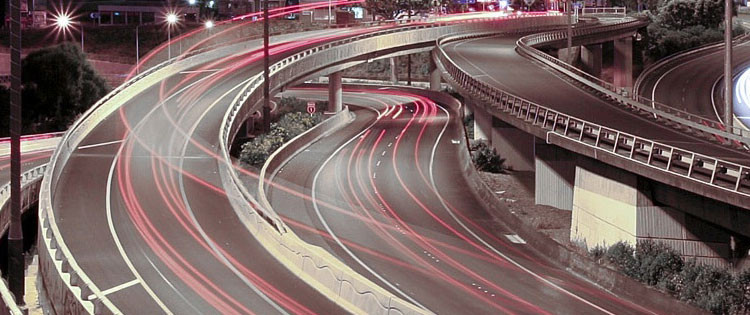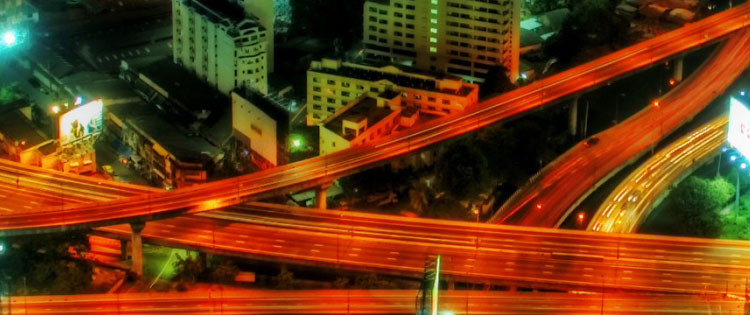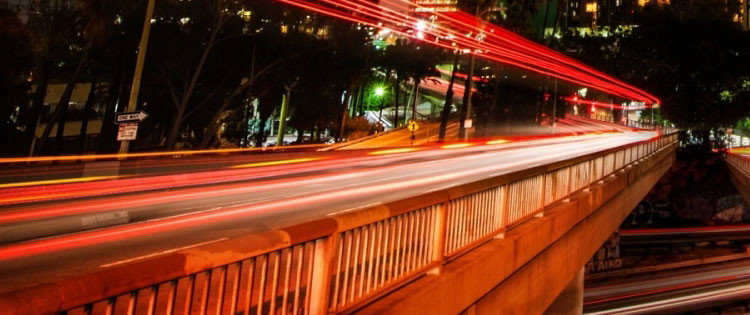Abbott, state leadership fail to protect drivers from fees increases, more road debt
By Terri Hall
June 20, 2021
Ouch! That’s likely the reaction of taxpayers now that the session is over and the damage to your pocketbook is emerging from the chaos. The 87th Legislature in Texas came to a clunky close a few weeks ago, and the results for taxpayers, particularly drivers, is a mixed bag. Both during his campaign in 2014 and again during his state of the state address in 2015, Governor Greg Abbott promised to fix our roads without more taxes, fees, tolls, or debt. It was the centerpiece of his Texas Clear Lanes Initiative — to pass Prop 7 that year in order to get more funding directed to the state’s most congested roads without adding to the tax burden and without more tolls.
However, this session, he broke three of the four promises. The legislature put a vehicle registration fee hike, a bill to issue new debt from the Texas Mobility Fund (TMF), and another to allow private toll entities to increase toll fines and fees above the $48/year cap placed on the Texas Department of Transportation (TxDOT) on his desk. Abbott allowed all to become law without his signature, but he allowed them to become law nonetheless. Shame on the legislature for passing them in the first place.
The $10 vehicle registration fee hike, HB 1698 (Raney), applies to a Regional Mobility Authority (RMA), which is primarily a toll authority, in Brazos County. That means every car owner will pay more in order to subsidize a toll project they may never drive. It also triple taxes the drivers who do take the toll road since they pay a toll, an extra vehicle registration fee in addition to paying gasoline taxes to use that stretch of road. The excuse they used was that it will come before the voters first. Naturally, big government can always find a way to put lipstick on a pig and sell it to the voters as ‘give us more money or else none of your roads will get fixed.’ Hardly an argument for limited government, lower taxes, or freedom of mobility. Instead, they’re essentially saying give us more while we squander, misuse, or waste the money we already take from you. When RMA executive directors garner higher salaries to run these little toll fiefdoms compared to the Executive Director of TxDOT with 11,000 employees, there’s a problem with bloat and overspending. It’s certainly not because taxpayers aren’t paying enough.
HB 2219 authored by House Transportation Committee Chair Terry Canales will open up the Texas Mobility Fund once again to issuing more road debt. The state debt combined with its local toll entities (which are a subdivision of the state) and private toll entities exceeds $85 billion. The excuse we heard for issuing new TMF debt was because I-35 through Austin will be done non-toll and cost $9 billion, there’s not enough money to go around to fix other congested corridors without tolls (which Abbott has taken off the table). So leadership says it needs access to new road debt in order to avoid using tolls, particularly private toll projects like the exorbitantly expensive ones (as in over $3/mile or $24/day expensive) outside Austin, in DFW, and a stretch in Brazoria County.
HB 1116 by Ed Thompson is one of the most egregious of the session giving a blank check to these private toll entities to slap enormous toll fines and fees onto drivers’ toll bills, bypassing existing state law that caps those fees at $48/year on TxDOT-operated projects. Why on earth would lawmakers allow unlimited fines and fees by private, foreign corporations to be slapped on Texas drivers that it doesn’t tolerate from TxDOT? Fines that can result in a criminal charge and cause drivers to have their vehicle registration blocked and cars impounded?
Watch Out for November Ballot
One piece of legislation, HJR 99 (Canales), that bypasses the governor is a constitutional amendment that gives counties the ability to issue new road debt using an unpopular method backed by property tax increases called Transportation Reinvestment Zones (TRZs). Lawmakers already tried getting this past the voters in 2011 (then known as Prop 4), but voters rejected it. Now they think they can get it slipped past you this November by deceptively changing the ballot language to remove the phrase ‘ad valorem tax increases’ and throw in the word ‘transportation’ (ballot initiatives for transportation tend to pass with over 90% of the vote – nearly 100% of citizens need and use roads on a daily basis, it’s one of the few core functions of government). Even more frightening is the broad language used for the land to do it. It changes the constitution to give counties authority to issue bonds to finance ‘undeveloped, underdeveloped, or blighted areas.’ That could mean virtually anything! One man’s blight is another man’s treasure. The word transportation wasn’t even in the bill until Senator Bob Hall amended it.
Here’s what the ballot language was in 2011:
“The constitutional amendment authorizing the legislature to permit a county to issue bonds or notes to finance the development or redevelopment of an unproductive, underdeveloped, or blighted area and to pledge for repayment of the bonds or notes increases in ad valorem taxes imposed by the county on property in the area. The amendment does not provide authority for increasing ad valorem tax rates.”
Here’s what it says now:
“The constitutional amendment authorizing a county to finance the development or redevelopment of transportation or infrastructure in unproductive, underdeveloped, or blighted areas in the county.”
Senator Hall jumped into action to help us try to amend the bill and restore the original ballot language. He did manage to amend it in the senate to ensure it can’t be used on toll projects. Whew! But the senate expressly voted to keep the deceptive ballot language. Be forewarned, this bill involves increases to your property taxes to pay off long-term debt for 40+ years for state transportation projects (or anything they can call ‘infrastructure,’ which if you look at the current Biden administration infrastructure bill, that could be student loan forgiveness, Obamacare subsidies, Medicaid expansion or universal preschool). We don’t know the number for this proposition yet or what order it will appear on the ballot, so stay tuned and stay engaged so you know to vote ‘no’ on this proposition in November. Also, remember to hold your lawmakers who voted for it accountable. No fewer than 112 house members co-authored the bill, including Freedom Caucus members Briscoe Cain, Matt Krause, Valoree Swanson, Steve Toth, and Cody Vasut.
So What’s the Mixed Bag?
The grassroots victories come from what you don’t see rather than what you do. Stopping the fire hose of bad toll road, anti-car, anti-driver bills was our biggest accomplishment.
We stopped bills that would have:
-Authorized unlimited private toll roads.
-Reduce speed limit citywide to 25 MPH in urban areas.
-Doubled fines in any corridor labeled a ‘highway safety corridor’ (another form of a speed trap).
-Made cars have to stop not just yield for pedestrians.
-Made TxDOT consider social justice and transportation equity (ie – bike lanes, transit, sidewalks) in all of its funding decisions despite the fact none of these users pay road taxes.
-Eliminate competitive bidding on certain contracts.
-Expanded public-private partnership land deals for the transit agency in Ft Worth (threat to property rights).
-Expand use of RMA toll revenues to green spaces, transit, and economic development unrelated to the toll road.
and more.
While Transportation Committee Chairs, Canales and Senator Robert Nichols, deliberately held up our good reform bills to remove tolls once the debt is paid off and to de-criminalize an unpaid toll bill, and to cap the toll fines and fees imposed by agencies other than TxDOT, Nichols did keep many bad bills from going anywhere in the senate. Cain also played a major role in stalling our toll collection reform bill, HB 3314, in Canales’ committee. Canales presided over an onslaught of horrible bills not only getting hearings, but also moving them out of his committee, forcing the grassroots to mount continuous battles to stop the litany of bad bills in the House. The worst among them was HB 3467 (Canales) to extend the disastrous SH 130 private toll contract another 20 years. It went bankrupt in less than 3 years, and rather than give it back to Texas taxpayers free and clear of any debt (as was promised under oath by former Transportation Commission Chair Ric Williamson in 2007), the court allowed a new set of foreign corporations to come in and take over the contract.
They already get to collect tolls until 2042 (for a road that had its debt wiped out), now they want another 20 years? It’s an outrageous betrayal of the promise given to taxpayers and represents the graft associated with such private toll contracts known as Comprehensive Development Agreements (CDAs) or public-private partnerships. The non-compete clause forbids expansion of free roads in Guadalupe and Caldwell counties, forces Texans to pay for any uncollectible tolls for out of state or international drivers, and these private entities use the state as its toll collector blocking vehicle registrations and impounding Texans cars if they don’t pay up.
Rep. Trent Ashby amended HB 3467 on the floor kicking the ball to the unelected Transportation Commission to decide if extending the contract was a good deal for the state (an easy bar to meet when they offer a revenue-sharing scheme with TxDOT), and it would have barred any future extensions. Thankfully, it died in the senate, but it did pass the House. A day of reckoning should be coming at the ballot box for all who voted for such a horrible special interest bill as well as the four fee hike and road debt bills (with the fate of the one constitutional amendment to be determined in November at the ballot box).
A Few Good Ones Made It
Nichols authored two good bills. One relates to toll road abuse. SB 1727 will prevent local governments from forming their own government corporations to sell their toll systems to in order to use toll revenues as their personal slush funds for non-road purposes. Harris County did this to deliberately bypass state law that prevents raiding toll revenues for non-road uses.
SB 15 prevents the disclosure and sale of drivers’ personal data to private entities who then use it to market to you without your consent. TxDOT and the Dept. of Motor Vehicles have been particularly guilty of doing this, but as the session wore on, lawmakers kept discovering more and more government agencies selling personal data and added them to the bill. like Parks & Wildlife. SB 858 (Johnson/Paxton) also protects transit riders’ personal data. So personal data privacy gets a big win here, although none of this extends to toll agencies guilty of the same thing. Toll agencies and their lobbyists get a free pass for another two years as lawmakers turned a blind eye to the mountain of toll road and toll billing abuses.
Property rights reform
One bright spot was the series of eminent domain reform bills that FINALLY passed after many sessions of repeated road blocks by special interests. Senator Charles Schwertner along with many senate joint authors, including long-time property rights (and anti-toll) champion Senator Lois Kolkhorst, finally got these across the finish line. SB 721, SB 725, and SB 726 will allow any appraisals used by condemning entities to be disclosed to landowners in time for their hearings, would remove condemned land from a landowner’s property tax bill, and force condemners to make actual progress on the public project within 10 years or the landowner can buy it back.
So like most sessions, taxpayers got very little meaningful toll road reform, as lawmakers chose to keep biting around the edges by avoiding tackling the most pressing issues facing drivers.




